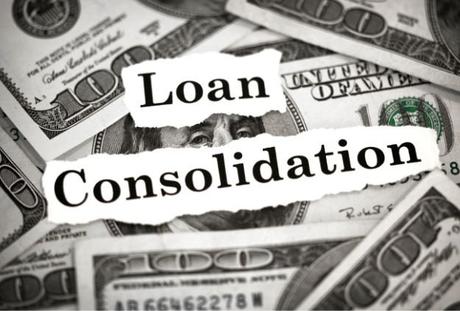Debt consolidation products are commonly used to help people who are struggling with repayments to get their finances back on an even keel.
There's a lot of misconceptions and potential points of confusion surrounding debt consolidation, so in order to demystify it let's delve into the details and discuss the ins, outs, ups, and downs of this solution.

The basics of debt consolidation
The underpinning principle of consolidating your debts is simple; rather than paying out to lots of different lenders each month, with the potential for steep interest charges making this untenable in the long term, you instead condense this by taking out a single loan.
The loan will pay off what you owe elsewhere and leave you with just one lender to repay going forward.
Given that rates are rising and economic uncertainty is looming large for many people right now, debt consolidation provides a path to escape from debt rather than being eternally beholden to it.
One of the situations in which people use this type of product is when consolidating credit card debt . The allure of credit card deals today, and the ease with which people can get approved for cards that they then cannot afford to repay, means that having multiple accounts open with thousands owed on each is not unusual.

Credit card interest rates can be especially high, leading to punishing minimum repayments that mean the debt is never reduced, merely maintained. By switching to a standard loan instead, that sets an endpoint at which time the customer will be debt-free, which is an important goal to have on the horizon, and avoids those all too common feelings of hopelessness that credit card debt stimulates.
There are of course other debts which can be consolidated in this way, such as a personal loan with a high rate. Just make sure that early repayment fees don't apply, otherwise, this could be an additional cost to keep in mind.
The peripheral perks of debt consolidation
Whatever your circumstances, good money management is something to strive towards. And with the right loan package designed to consolidate debts, you can stabilize your shaky finances in one fell swoop.
A good reason to do this is that you'll be able to build up your credit history by regularly repaying and eventually paying off entirely your debt consolidation loan. This will boost your credit score and make you more likely to get approved for other loan products further down the line, such as mortgages.
Another selling point is that the rate at which you can claw yourself out of debt will be quicker if you've got a loan with a fixed duration and number of repayments, rather than credit card debt which might have variable rates of interest applied to it, and could swing from manageable to unaffordable in a matter of moments.
In addition, when you've paid down your existing debts and used a loan to consolidate them, you can kick credit cards to the curb and switch to a more acceptable credit product, if you still need one to go about your daily life.
So for a lot of people, debt consolidation makes sense on many levels, so long as it meets their needs and is managed correctly.
The downsides of debt consolidation
It's not all sunshine and flowers, of course. You shouldn't be blinkered by the potential pitfalls of this type of loan because otherwise you might be surprised by what you find when you start your search for one.
First, there's the matter of whether or not you'll meet the eligibility requirements for a low-interest consolidation loan. If your credit score leaves a lot to be desired, then lenders won't offer you their most affordable packages. This will make repayments more expensive and also mean that the length of the repayment period could be more protracted as well.
Then, there's the issue of being obliged to make the repayments month after month. Trip up, and you'll be plunged even further down the credit rating spectrum.
Last, there's the fact that consolidating debts won't make you better at managing your money. If you've already developed bad spending habits, then you can't expect these to change overnight just because you've made this one change. You'll need to rethink your entire approach to keeping on top of your finances and use this in combination with debt consolidation in order to restore balance.
The importance of patience
While debt consolidation loans are certainly a very good thing for people who can take full advantage of them, the way that this type of financial product is marketed is perhaps unhelpful. You might get the sense that this is a way to fix the money problems you face instantly when in reality it's just the beginning of a potentially long journey.
As such, you need to recognize this and aim to be patient and persistent in sticking to the repayment plan that's part of any debt consolidation loan you take out. It will be months or even years before the total is paid off, and in the interim you will have to make savings and sacrifices elsewhere to stay on top of things, as discussed.
The same virtue of patience must be applied to your credit score , because this will of course take a hit when you're approved for a loan; that's just the way the system works. Once you begin making repayments, it will climb higher, and the long-term positives will outweigh the short-term setbacks.
Speaking with a professional financial advisor before taking out a debt consolidation loan is sensible, if one is available to you. They will be able to guide you based on your specific situation because there's no one size fits all solution.
There are also other ways to deal with debt that don't involve a consolidation loan, so explore all your options before you choose.

About Sonia Kukreja
I am a mother of a lovely kid, and an avid fan technology, computing and management related topics. I hold a degree in MBA from well known management college in India. After completing my post graduation I thought to start a website where I can share management related concepts with rest of the people.

